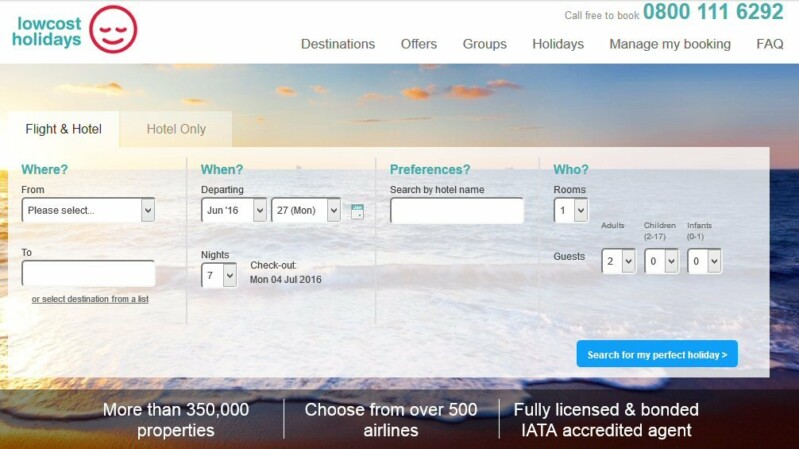The Online Con
It was shocking to read about the recent demise of LowCost Travel Group last month. Just take a look at the Administrator’s message on the Group’s website. Under the heading, “Accommodation,” you can read, “In most cases, accommodation in resort has regrettably not been paid and your booking is not secured.” The same with transfers and car parking.
The Daily Express amongst other newspapers reported that there were around 27,000 customers overseas at the time of the business’s collapse with more than 100,000 customers who had booked and paid but not yet travelled. Those who paid by credit card will likely get compensation under Section 75 of the Consumer Credit Act. Those who did not are out of luck (and out of pocket).
This is a woeful situation that does no credit at all to the travel industry We have ATOL and ABTA protection for customers of UK based holiday companies, so why on earth were so many people booking with LowCost Travel Group and not realising or perhaps not caring that they were not protected? I have deliberately titled this blog post, “The Online Con.” Even now, decades on from the launch of the first websites, it is still possible to build a sophisticated, attractive online presence that will give the impression of financial stability. The image at the top of this article shows LowCost Holidays website as it was at the end of May. Do you see the wording? “Fully licensed & bonded IATA accredited agent” What is a consumer to think? Would a consumer realise the implications of the company name at the bottom of the web page? “Lowcostholidays Spain, S.L.U. trading as Lowcostholidays.com, CIF: B57813248” I don’t think so.
Lowcostholidays Spain, S.L.U. will have booked millions of passengers after it moved to Palma de Mallorca in November 2013. These are passengers that could have travelled with UK companies that had taken the trouble and gone to the expense to be ATOL, ABTA or TTA bonded. Why didn’t these holidaymakers book with properly protected companies? Why are our customers conned by a good-looking website with a few weasel words? I guess the answer is that they don’t know any better. Which means that they need educating. Consumers need to know who to trust and who might be conning them. There have been PR campaigns in the past promoting ATOL protected. I seem to remember an ABTA campaign once upon a time. I cannot recall a TTA campaign but I am sure there must have been. Clearly, these campaigns are not enough and, in any case, they are just telling consumers who to trust.
What about getting more aggressive. What about telling consumers who might be conning them? Should we be considering a black list of those companies that do not offer protection but are trying to pass themselves off as doing so? Sounds like an idea worth considering. Now which of our industry organisations would like to do swing into action?
